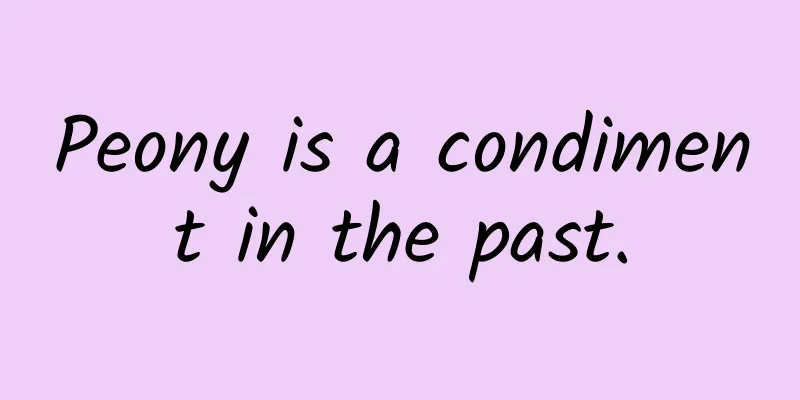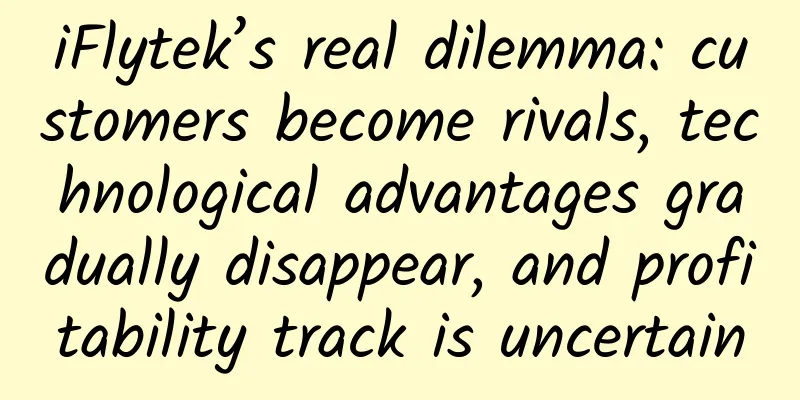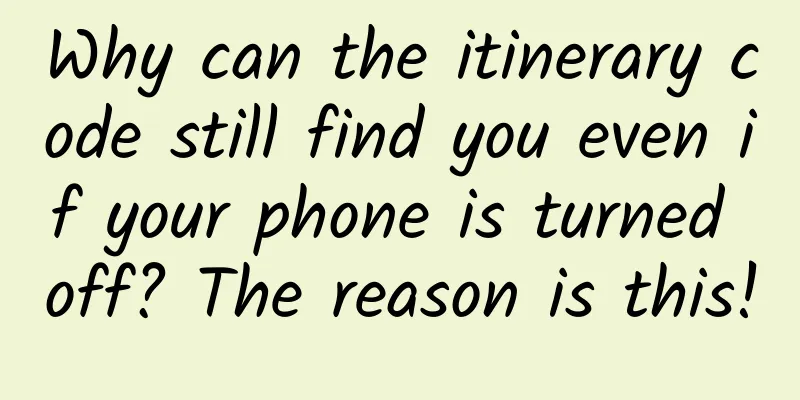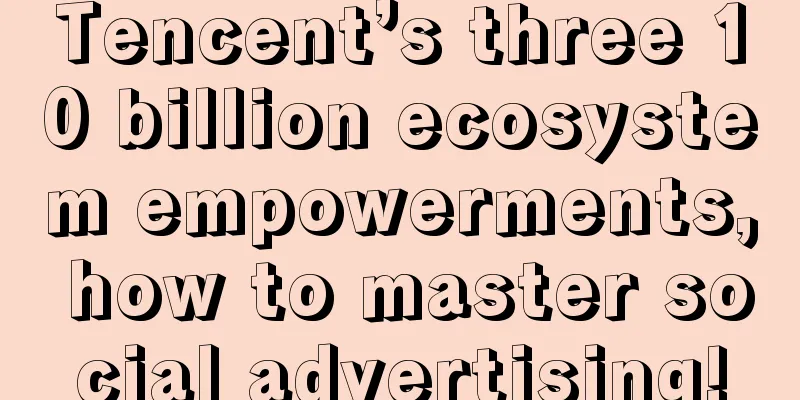Xiaomi's rhetoric behind content aggregation cannot hide the crisis of its TV business

|
Before the National Day, the Internet industry was not peaceful. The WeChat ranking incident once again pushed the old topic of data fraud to the forefront. When it comes to the sensitive word "data", each manufacturer has always insisted on its own opinion. We have also seen that in the past, in order to prove the TV content data, a notary office was brought to the press conference, which was regarded as a laughing stock. After a year, Xiaomi's "data delusion" broke out again. At Xiaomi's autumn new product launch conference last month, Xiaomi once again tore into its competitor LeTV, but it used the same old trick, "I have more content than you." Since the birth of Internet TV, content has always been the object of competition among major terminal manufacturers. It is often emphasized at press conferences, but what is the trick behind this? Content aggregation is just a castle in the air The first issue that needs to be emphasized is that the abundance of content and the quality of content on Internet TV are not on the same dimension. It is like when you want to eat, should you give you 10,000 steamed buns to fill your stomach, or give you a few of your favorite dishes in time? Even if you have so much content that you can't finish watching it in a hundred years, who would sit on the sofa and watch old TV series without being picky? The most precious thing about Internet TV for users is the right to actively choose high-quality programs. So in terms of content, who among the terminal manufacturers truly has the most exclusive resources, who truly owns the independent copyright, and who truly owns the high-quality content that users love most, will ultimately have the right to speak. In fact, what Xiaomi is doing is nothing more than a content aggregation lineup. By forming an alliance with video websites under BAT, it seems that content has become the most proud strength of Xiaomi TV. Wang Chuan compared it to this: "Video websites need content outlets the most, and Internet TV needs content providers the most. The two sides are like the relationship between TV stations and TV manufacturers." But in fact, alliance is the most unreliable cooperative relationship. If there is any conflict between the two parties, the content alliance will no longer exist. If there is no self-owned content, the TV will be filled with other people's wine, which means that the absolute control over the content is lost, and the TV will become a brick in a matter of minutes. I still remember the ridiculous press conference in early August. Xiaomi just announced that it had cooperated with BesTV to obtain the broadcasting rights of the Premier League. A few hours later, New England Sports, which actually owns the Premier League copyright in mainland China, publicly challenged Xiaomi for "blatantly jumping out to break the industry rules." Such examples are believed to continue to occur in the future. On the other hand, Xiaomi has also criticized the problem of charging annual membership fees for its competitors, and has used the slogan of free content to attract consumers. But when consumers actually bought the TV home, they were dumbfounded. It turned out that there were pitfalls everywhere, and there were hidden deductions everywhere. Popular movies and TV series required users to pay separately. If you want to watch iQiyi's exclusive dramas, sorry, you have to become an iQiyi member first; if you want to watch Mango TV's "Where Are We Going, Dad?" in time, sorry, this is exclusive to Mango members; if you want to watch the latest Premier League games, you have to pay the membership fee first. In this way, it is better to recharge LeTV's membership once and enjoy all the TV content, which is more refreshing and transparent. From this point of view, no matter how much aggregated content there is, it is just duplication. Slightly better-looking and popular content still needs to be obtained through separate charges. Consumers will have their own judgment on which one is more appropriate, transparent and fair. Is it worth it to fight one fierce battle after another? In fact, for TV terminal manufacturers, anyone who wants to be a content integrator can do so by negotiating cooperation with major video websites one by one. You have more content, and I have more channels, which seems to be a win-win situation for both parties. However, this situation will lead to a serious consequence: the content of Internet TV will become homogeneous, and it will regress to the era of traditional TV stations. For example, Xiaomi said that it has already included the three Chinese video websites, iQiyi, Tencent and Youku, into its content matrix, but Coocaa can do the same, Hisense can do the same, Changhong and TCL can do the same, and of course iPad can do the same, as can screen casting software and aggregation software such as TVCat. So is there any need for users to choose Internet TV? It is not the first time that Lei Jun has dragged friendly companies into the water and cursed at his opponents. If you ask whether it is worthwhile to start such a war of words, it is worthwhile for Xiaomi. At a time when the sales of its core business, mobile phones, have dropped sharply and the TV business has been slow to take off, relying on verbal attacks to attract attention can be said to be a relatively cheap and effective marketing method. And based on the fact that Lei Jun himself is getting further and further on the road to becoming an Internet celebrity, a war of words exposing each other's shortcomings is bound to attract the attention and complaints of netizens. But what happens after that? We can't help but ask, how much profit can Xiaomi really make from this? How many users can the verbal attack attract? Is the quarrel really beneficial to the healthy development of the emerging Internet TV industry? I believe that the answer is clear to everyone. This may be the reason why LeEco chose not to respond to the provocation this time, and directly returned the original words from the past battle to Xiaomi. Throughout the entire Internet TV industry, it has basically maintained a state of specialization, divided into two camps: hardware manufacturers and content manufacturers, and both parties basically make profits through cooperation. There are only a handful of manufacturers that have both hardware technology and content copyrights. LeTV is considered a pioneer, and Weijing followed later. PPTV, Baofeng, etc. are not yet established. The master of all trades often makes people jealous, and companies like LeEco that have already connected the upstream and downstream of the industry chain are seen as a thorn in the eye. No wonder the CEO of a video website once said in an interview that he wanted to kill LeEco. Of course, such heartfelt words have been deleted in the external public relations draft. After all, not everyone has the "courage" to continuously make trouble like Xiaomi. For the healthy and long-term development of the Internet TV industry, we would like to advise all major manufacturers who are getting angry and watching from the sidelines that the industry has gone through many difficulties and we hope that everyone can be more sincere and less scheming.
As a winner of Toutiao's Qingyun Plan and Baijiahao's Bai+ Plan, the 2019 Baidu Digital Author of the Year, the Baijiahao's Most Popular Author in the Technology Field, the 2019 Sogou Technology and Culture Author, and the 2021 Baijiahao Quarterly Influential Creator, he has won many awards, including the 2013 Sohu Best Industry Media Person, the 2015 China New Media Entrepreneurship Competition Beijing Third Place, the 2015 Guangmang Experience Award, the 2015 China New Media Entrepreneurship Competition Finals Third Place, and the 2018 Baidu Dynamic Annual Powerful Celebrity. |
<<: 105-year-old IBM is overwhelmed by reform. Can artificial intelligence save it?
Recommend
Visiting Hong Kong Apple Store: Scalpers swarm to grab iPhone 6, shocking Hong Kong people
With the recent launch of iPhone 6, strange scene...
The "whitening secrets" you've heard of are useless! Check out these 3 tips, they can really whiten your skin, and they're safe!
As the saying goes, a white complexion hides a hu...
Practical review: A practical social media marketing plan for automotive products
In early June, a student took on a social media m...
"One medicine cures many diseases" is no longer a legend? "Panacea" may become a reality!
□ Feng Yan, Science Times reporter Wang Chun How ...
Why can Eskimos eat raw meat? Is it because of genetic mutation, or is there another reason?
As the saying goes, people are shaped by the land...
Makeup tips for beginners
Introduction to makeup skills resources suitable ...
Is it true that the gallbladder is prone to inflammation when exposed to heavy fish and meat?
《Cotton Swab Medical Science Popularization》 Beij...
Inventory: Top 10 classic cases of AR marketing
The magic of AR is that anyone with a smartphone ...
What changes will the quality of server rental bring to the website?
What changes will the quality of server rental br...
How to replicate the success of Jiang Xiaobai and Heytea?
Brand marketing is a discipline that combines sci...
Bilibili VS Zhihu: The two sides of the same coin in terms of user expansion
From the New Year's Eve party that went viral...
Autohome Financial Festival concluded successfully with multiple benefits winning overwhelming favor from users
As of March 31, 2018, the Hundred-Day Financial F...
The invisible "gorilla": What does "selective attention" bring?
Last week, for those who are interested in tennis...
The connotation and realization path of common prosperity Baidu Cloud Download
Resource introduction of the connotation and real...
Are black takeaway spoons poisonous? Do you still dare to use them?
Editor: Gong Zixin When you order takeout, do you...









